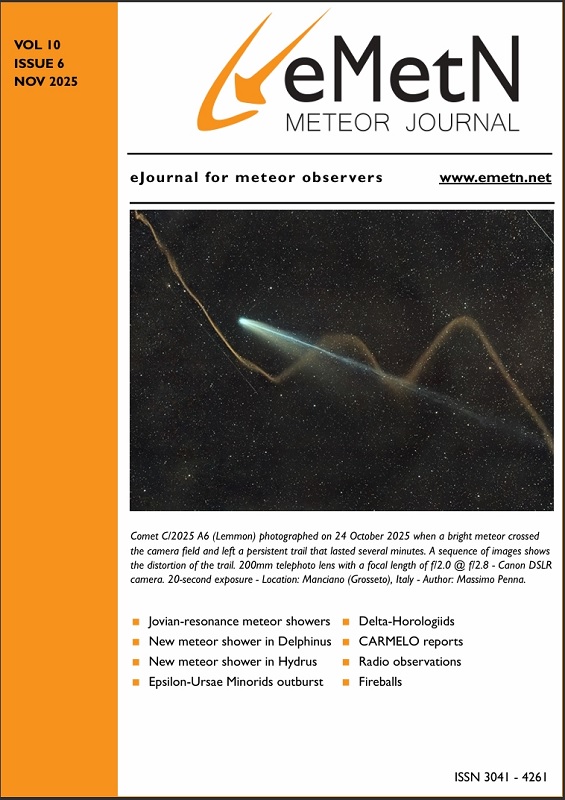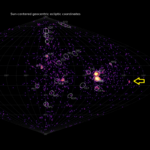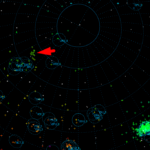Abstract: An overview of the radio observations during August 2023 is given.
The graphs show both the daily totals (Figure 1) and the hourly numbers (Figure 2) of “all” reflections counted automatically, and of manually counted “overdense” reflections, overdense reflections longer than 10 seconds and longer than 1 minute, as observed here at Kampenhout (BE) on the frequency of our VVS-beacon (49.99 MHz) during the month of August 2023.
The hourly numbers, for echoes shorter than 1 minute, are weighted averages derived from:

Due to mechanical damage to its transmitting antenna the beacon was out of order between August 24th at 17h40m UT and August 25th at 13h49m UT. Therefore, observations for this period are left out of the counts, especially because on these days also strong lightning activity made things worse. On 5 other days weak to moderate lightning activity was also observed, but over the month local or unidentified noise remained moderate to low. Quite strong solar bursts happened almost every day, but in general these were weaker than the previous month.
Eye-catchers were of cause the Perseids, reaching their maximum on both 13th and 14th of August, having been quite active as from the beginning of the month. After their maximum the number dropped rapidly, but on August 27th and the following days a moderate increase of overdense reflections longer than 10 seconds showed up.
Over the entire month, 67 reflections longer than 1 minute were observed. A small selection of these, along with some other interesting reflections is included (Figures 3 to 26). Many more of these are available on request.
In addition to the usual graphs, you will also find the raw counts in cvs-format from which the graphs are derived. The table contains the following columns: day of the month, hour of the day, day + decimals, solar longitude (epoch J2000), counts of “all” reflections, overdense reflections, reflections longer than 10 seconds and reflections longer than 1 minute, the numbers being the observed reflections of the past hour.
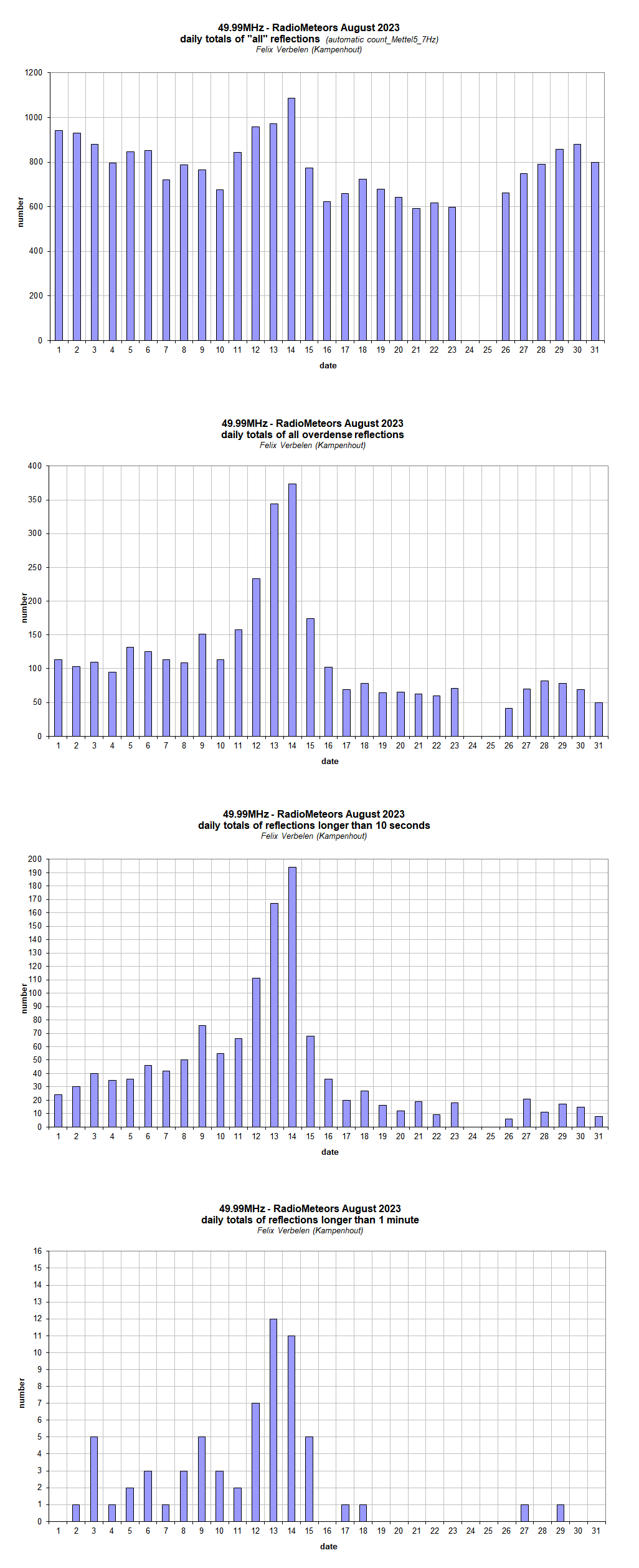
Figure 1 – The daily totals of “all” reflections counted automatically, and of manually counted “overdense” reflections, as observed here at Kampenhout (BE) on the frequency of our VVS-beacon (49.99 MHz) during August 2023.
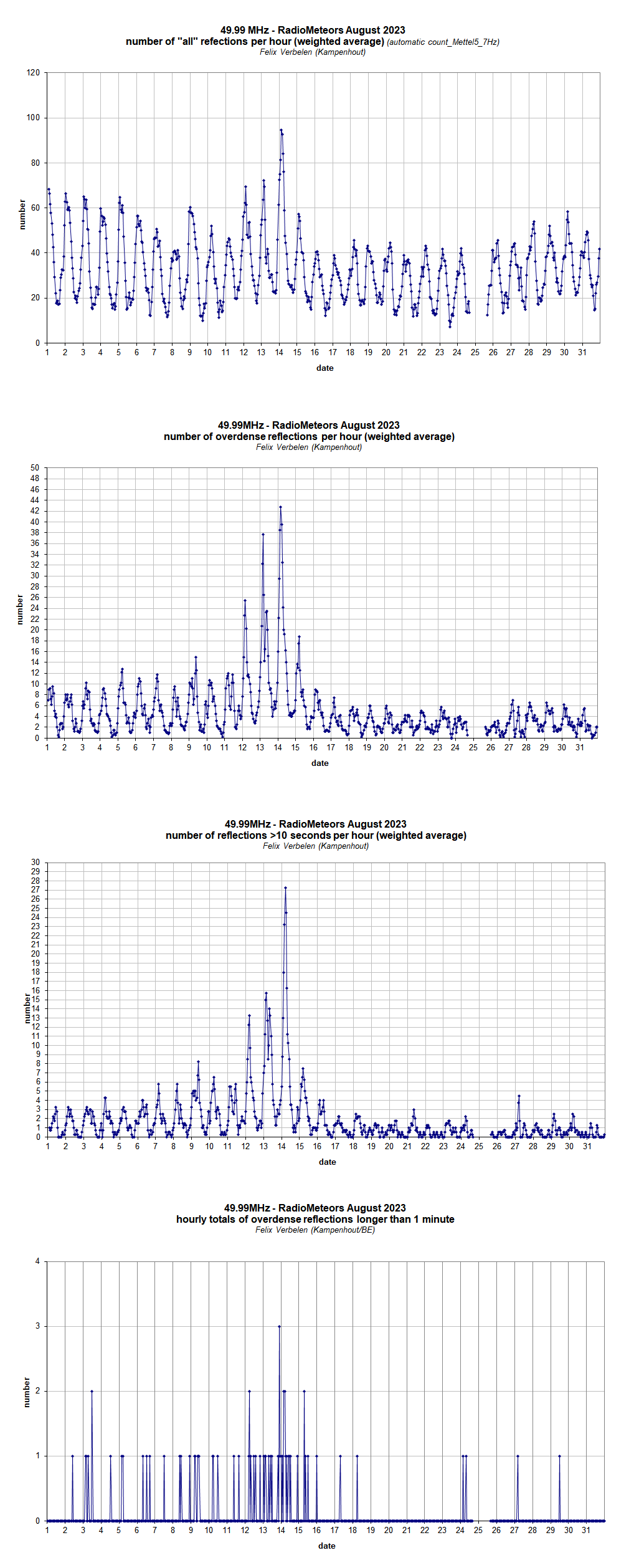
Figure 2 – The hourly numbers of “all” reflections counted automatically, and of manually counted “overdense” reflections, overdense reflections longer than 10 seconds and longer than 1 minute, as observed here at Kampenhout (BE) on the frequency of our VVS-beacon (49.99 MHz) during August 2023.
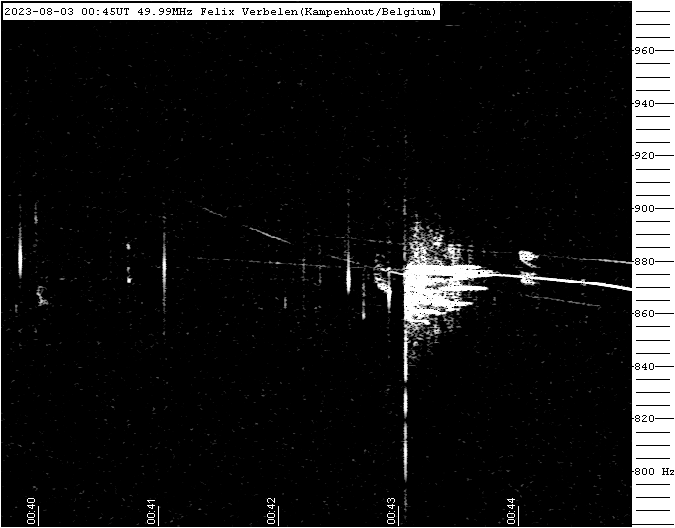
Figure 3 – Meteor echo 3 August 2023, 0h45m UT.
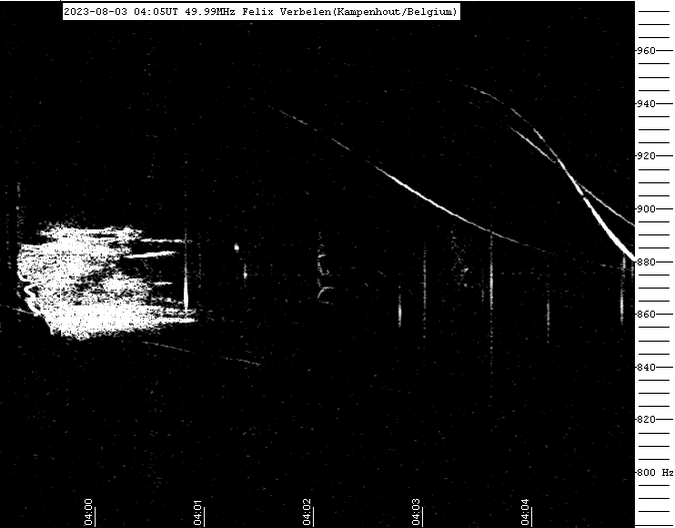
Figure 4 – Meteor echo 3 August 2023, 4h05m UT.
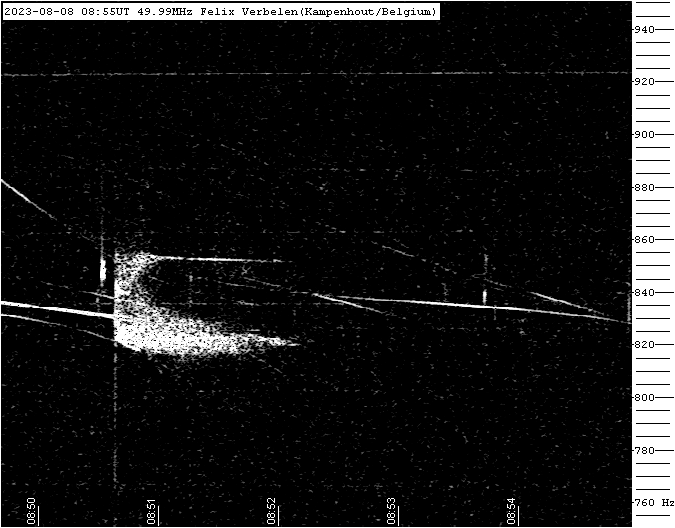
Figure 5 – Meteor echo 8 August 2023, 8h55m UT.
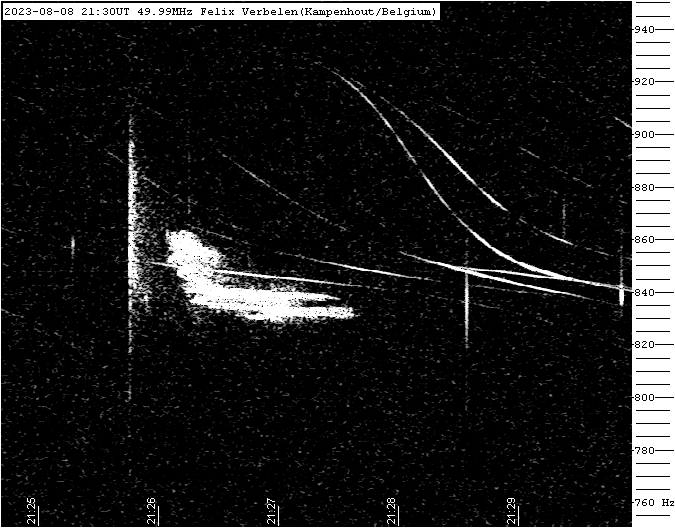
Figure 6 – Meteor echo 8 August 2023, 21h30m UT.
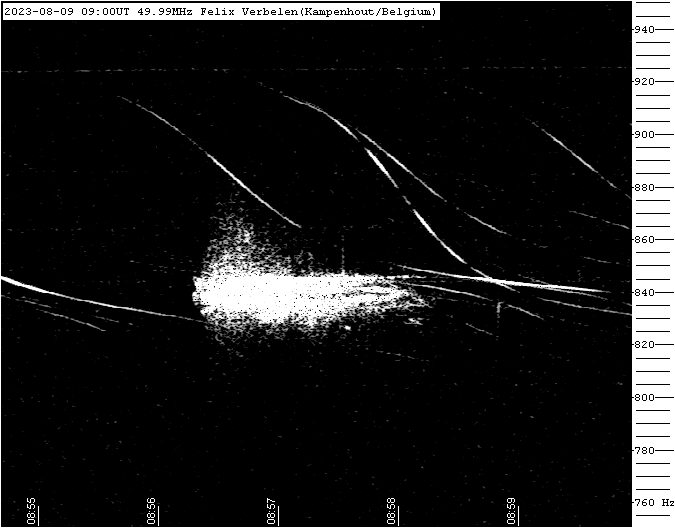
Figure 7 – Meteor echo 9 August 2023, 9h00m UT.
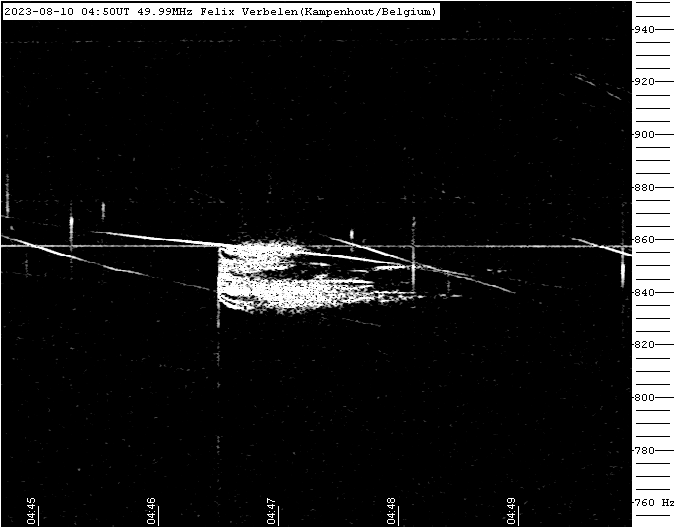
Figure 8 – Meteor echo 10 August 2023, 4h50m UT.
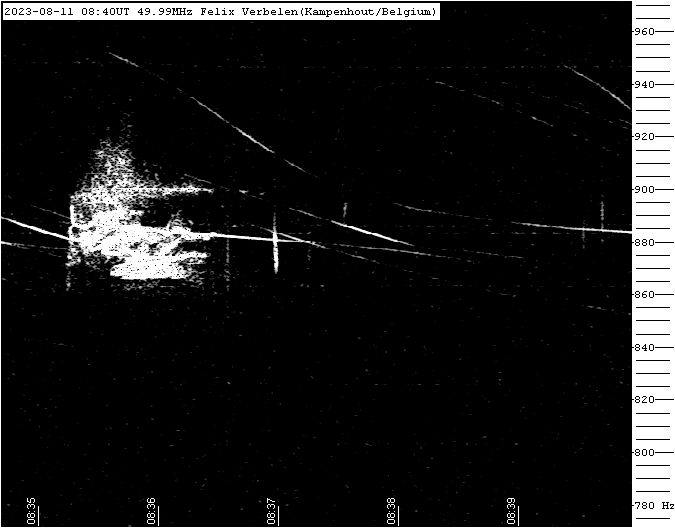
Figure 9 – Meteor echo 11 August 2023, 8h40m UT.
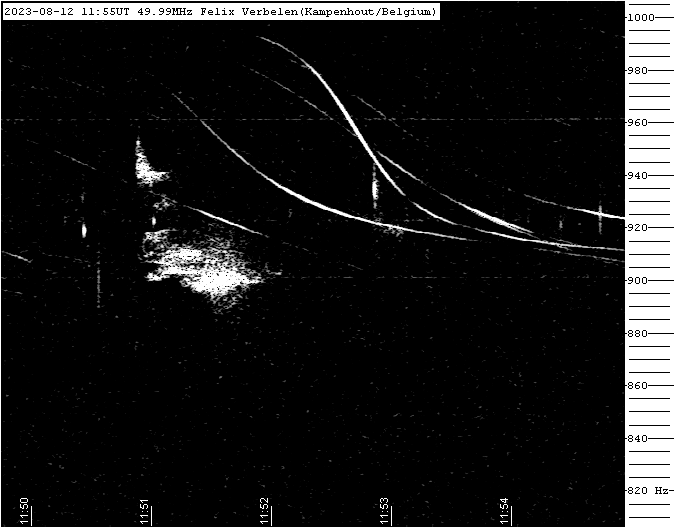
Figure 10 – Meteor echo 12 August 2023, 11h55m UT.
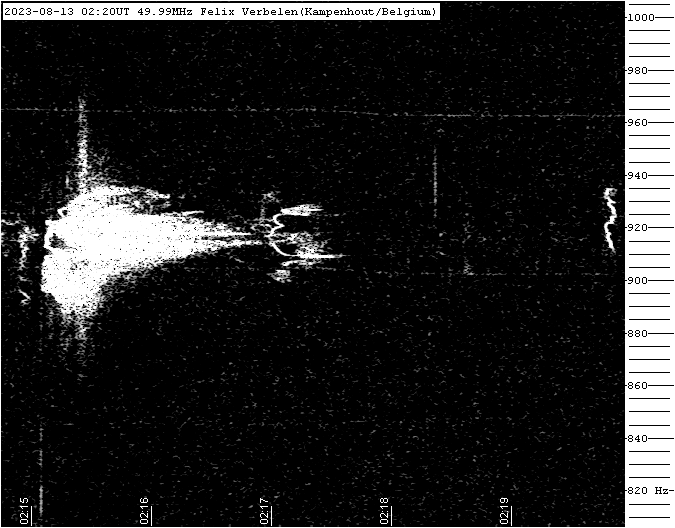
Figure 11 – Meteor echo 13 August 2023, 2h20m UT.
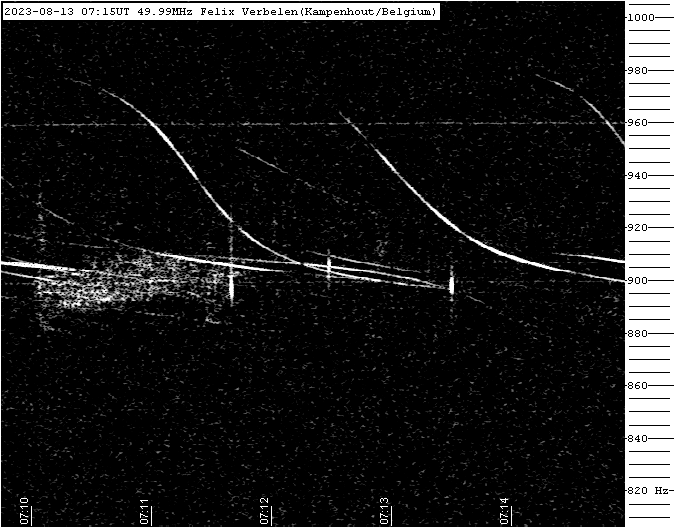
Figure 12 – Meteor echo 13 August 2023, 7h15m UT.
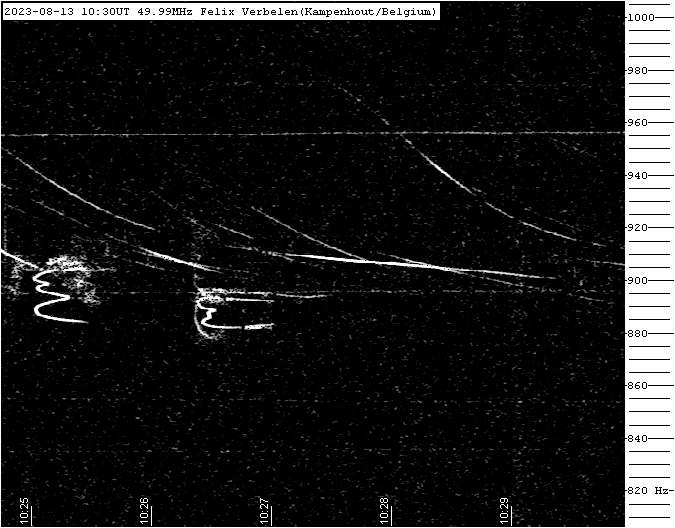
Figure 13 – Meteor echo 13 August 2023, 10h30m UT.
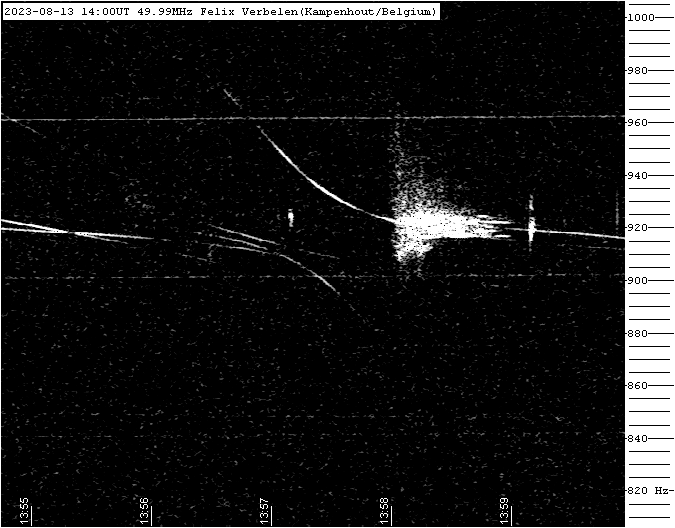
Figure 14 – Meteor echo 13 August 2023, 14h00m UT.
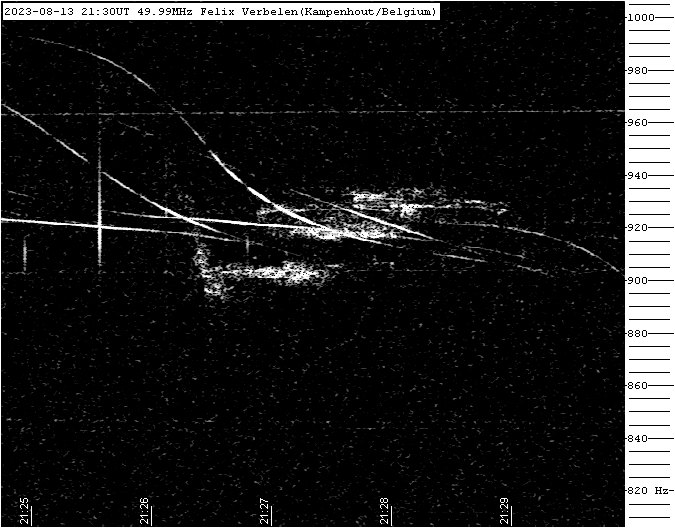
Figure 15 – Meteor echo 13 August 2023, 21h30m UT.
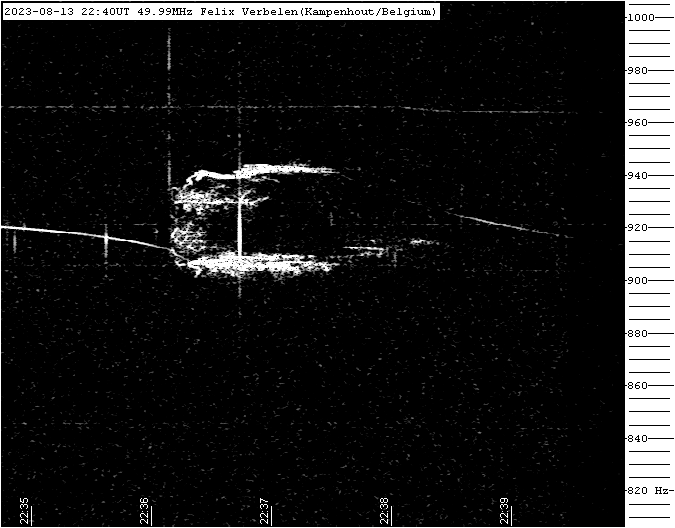
Figure 16 – Meteor echo 13 August 2023, 22h40m UT.
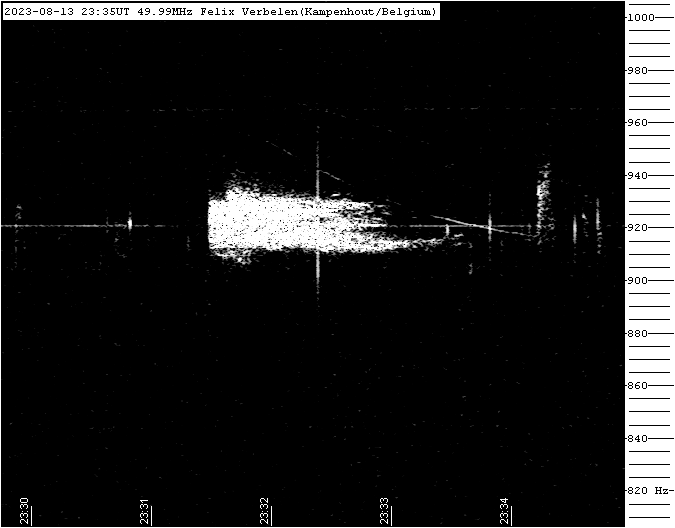
Figure 17 – Meteor echo 13 August 2023, 23h35m UT.
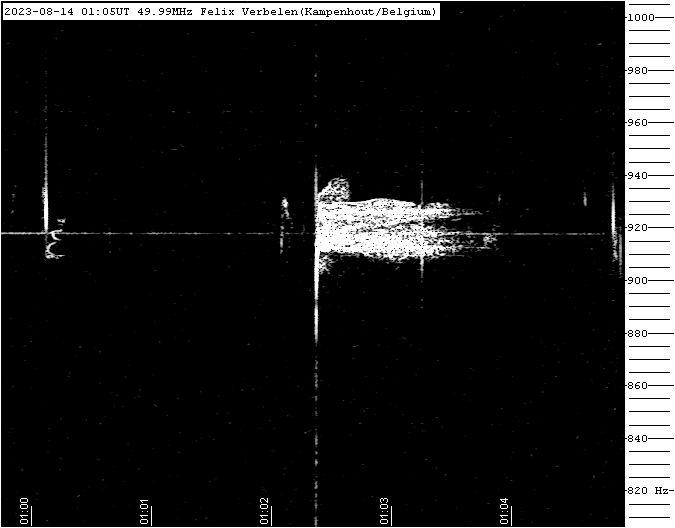
Figure 18 – Meteor echo 14 August 2023, 01h05m UT.
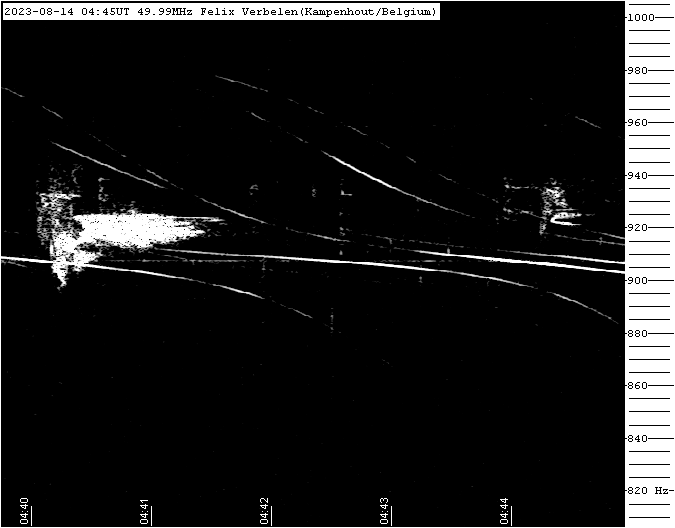
Figure 20 – Meteor echo 14 August 2023, 04h45m UT.
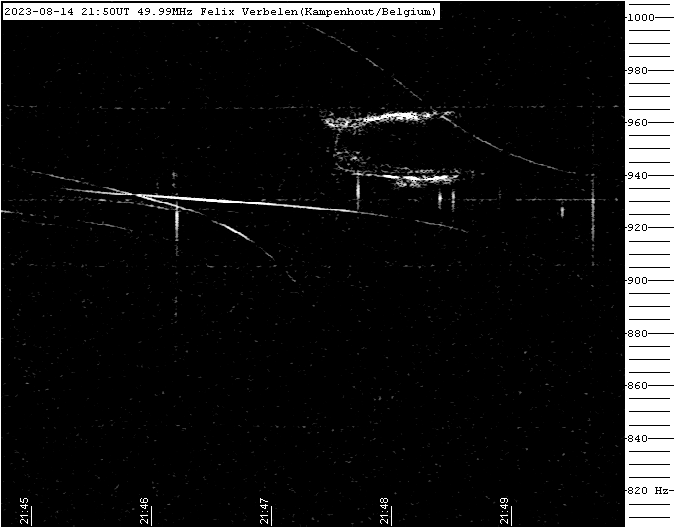
Figure 21 – Meteor echo 14 August 2023, 21h50m UT.
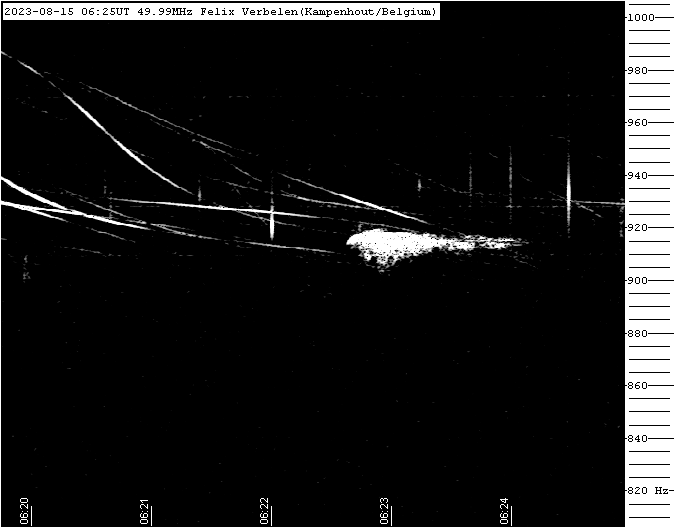
Figure 22 – Meteor echo 15 August 2023, 6h25m UT.
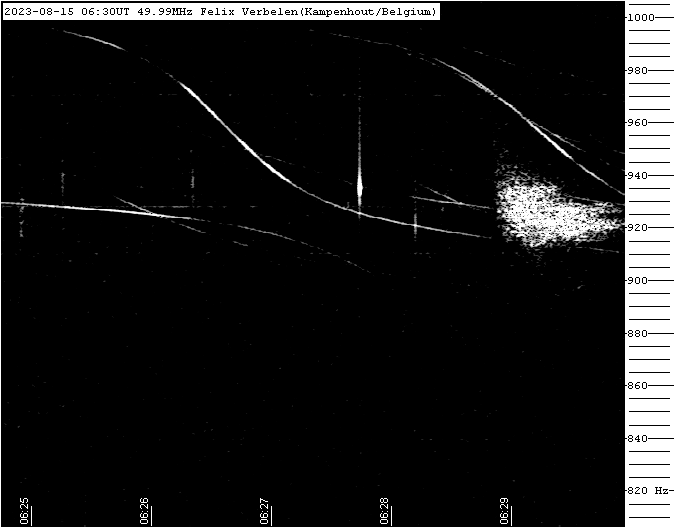
Figure 23 – Meteor echo 15 August 2023, 6h30m UT.
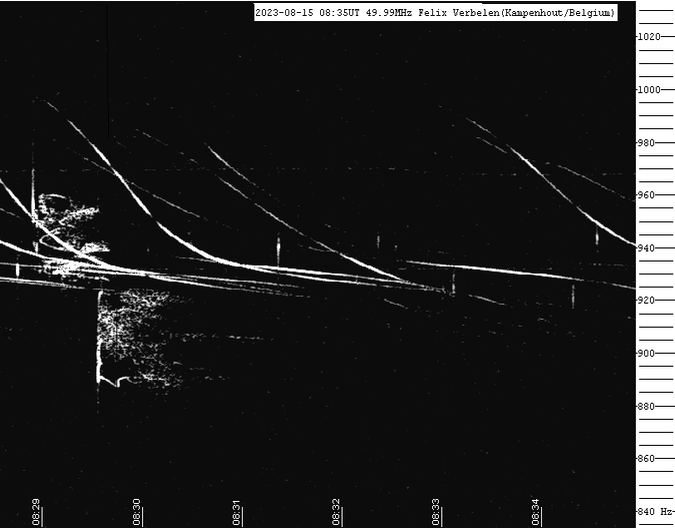
Figure 24 – Meteor echo 15 August 2023, 8h35m UT.
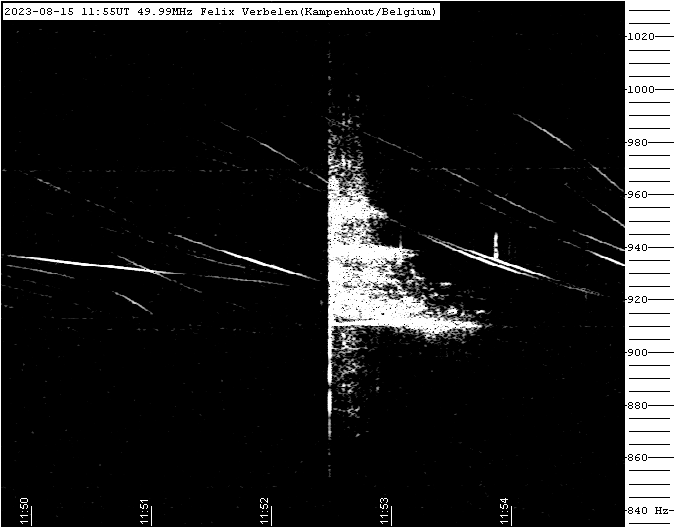
Figure 25 – Meteor echo 15 August 2023, 11h55m UT.
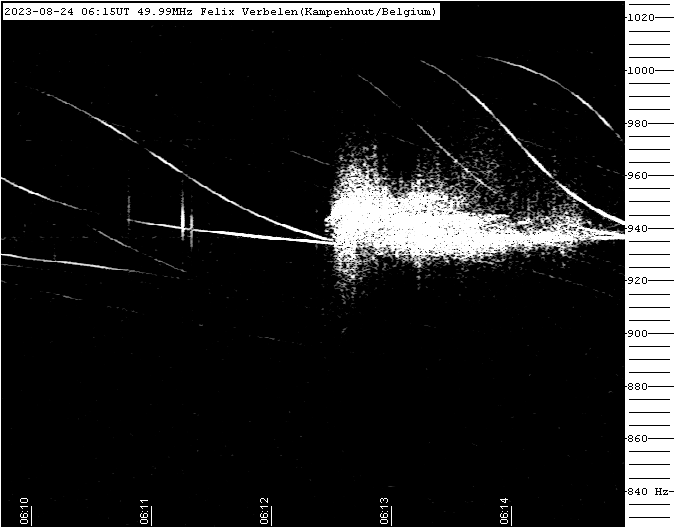
Figure 26 – Meteor echo 24 August 2023, 6h15m UT.

